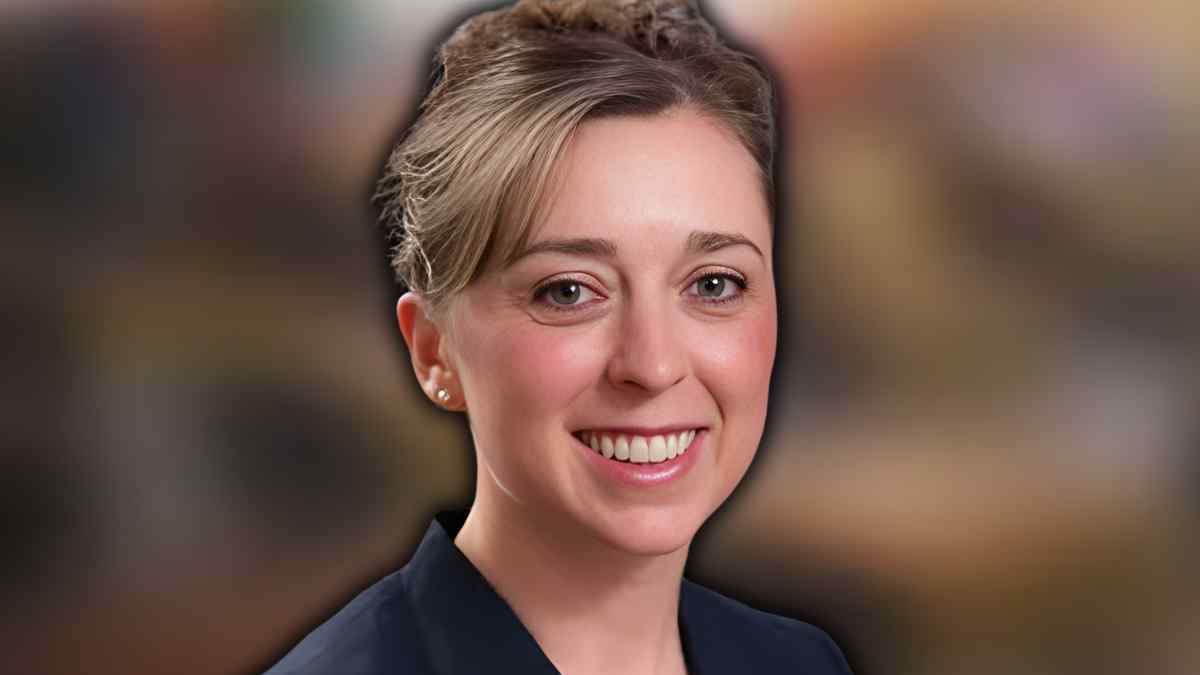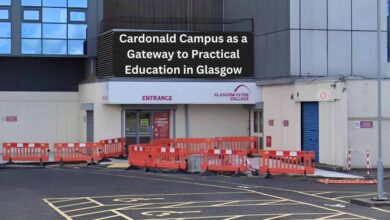Elizabeth Holley: Pioneering Mining Engineer and Advocate for Sustainable Resource Development

Elizabeth Holley is a highly respected Associate Professor in the Department of Mining Engineering at the Colorado School of Mines. Known for her expertise in exploration and mining geology, she has built a career that blends deep technical knowledge with a strong commitment to sustainable mineral exploration and responsible resource management. Her academic and professional journey spans multiple continents, integrating geological science, mining innovation, environmental responsibility, and stakeholder engagement. Holley’s work is particularly significant in today’s world, where the demand for critical minerals is increasing rapidly, driven by the shift to clean energy technologies and the need for resilient supply chains.
Early Life and Educational Background
Holley’s passion for geology and the earth sciences began during her undergraduate years at Pomona College, where she earned a Bachelor of Arts in Geology. Her early academic focus on metamorphic petrology allowed her to develop a strong understanding of mineral formation and geological processes. This foundation prepared her for further studies that would expand her scientific horizons.
She continued her education at the University of Otago in New Zealand, where she earned a Master of Science in Geochemistry. This period was instrumental in shaping her approach to environmental responsibility in mining, as her research explored the geochemistry of mine waste and its environmental implications. Her time in New Zealand also exposed her to diverse geological landscapes and innovative mining practices.
Her academic journey culminated at the Colorado School of Mines, where she completed her PhD in Geology, specialising in economic geology. This doctoral work sharpened her focus on ore deposit genesis and mining geology, which became central themes in her professional career.
Professional Career and Academic Role
Holley joined the Colorado School of Mines faculty, progressing to the role of Associate Professor in the Department of Mining Engineering. In this position, she has combined her expertise in geology with an understanding of the broader economic, social, and environmental contexts of mining. Her work is both classroom-based and field-focused, reflecting her belief that effective mining engineers must blend theory with practical, real-world application.
As an educator, she teaches courses such as Mining Engineering Design, Undergraduate Geology for Mining Engineers, and Graduate Mining Geology. Her teaching philosophy is centred on developing engineers who can think critically, adapt to changing industry needs, and work collaboratively with stakeholders.
Research Focus and Expertise
Elizabeth Holley’s research addresses some of the most pressing challenges in the mining industry. Her expertise spans several interconnected fields:
Ore Deposit Genesis and Mining Geology
Holley’s research into the origins of ore deposits provides vital insights for exploration geologists. She examines the geological processes that lead to the concentration of valuable minerals, helping to guide exploration strategies and improve resource identification.
Critical Minerals and Mining Innovation
The global demand for critical minerals—such as lithium, cobalt, and rare earth elements—has grown dramatically. Holley studies their geology, extraction methods, and supply chain challenges, advocating for innovative, responsible approaches that secure access without compromising environmental or social standards.
Sustainable Mineral Exploration
Holley promotes exploration techniques that minimise environmental damage and foster positive community relationships. This includes integrating advanced geoscience tools with sustainable land-use planning and social licence considerations.
Environmental and Social Responsibility
Recognising that mining operations inevitably interact with surrounding ecosystems and communities, Holley focuses on frameworks that ensure resource extraction benefits both people and the planet. She advocates for stakeholder engagement as a central pillar of mining projects.
International and Industry Experience
Holley’s professional career extends far beyond academia. She has worked as a project and staff geologist on five continents, gaining first-hand experience in diverse mining environments. Notably, she contributed to the discovery of the White Gold deposit in the Yukon, a major mineral find in Canada.
Her work has taken her to Australia, Suriname, New Zealand, and the United States, where she has been involved in projects ranging from grassroots exploration to large-scale mine development. This international exposure has deepened her understanding of how cultural, regulatory, and environmental factors shape mining operations in different parts of the world.
Policy Engagement and Public Advocacy
Elizabeth Holley is not only a scientist and educator but also a voice in policy discussions. She has testified before the U.S. Congress’s Critical Minerals Policy Working Group, where she stressed the importance of developing a sustainable, interdisciplinary mining workforce and ensuring the responsible sourcing of minerals. Her input reflects a growing recognition that mining policy must balance economic development with environmental stewardship and community well-being.
As a Fellow of the Payne Institute for Public Policy, she has also contributed to public seminars on topics such as whether the United States should mine battery minerals domestically. These discussions address strategic questions about national security, economic resilience, and environmental trade-offs.
Leadership in Professional Organisations
Holley’s influence extends into professional associations, most notably the Society of Economic Geologists (SEG). She has coordinated more than 175 professional development short courses, helping to equip geologists and engineers with the skills needed for a rapidly evolving mining industry.
Her recognition as an SEG Distinguished Lecturer highlights her role as a thought leader in economic geology. She has used these platforms to share her research findings, promote innovation, and inspire the next generation of mining professionals.
Research Funding and Collaborative Projects
Holley’s research has received support from prestigious institutions and industry partners, including the National Science Foundation (NSF), CDC/NIOSH, United States Geological Survey (USGS), the Gates Environmental Fund, and multiple mining companies. These collaborations enable her to pursue projects that address both scientific questions and real-world challenges.
Her NSF Career Award and Growing Convergence Research grant focus on developing critical mineral supply systems that are both efficient and sustainable. By partnering with government agencies, research institutions, and industry, Holley ensures her work has practical impact.
Commitment to Education and Mentorship
One of Holley’s most significant contributions is her dedication to training future mining engineers and geoscientists. She actively mentors undergraduate and postgraduate students, guiding them through field research, industry placements, and academic projects. Her students benefit from her global experience, interdisciplinary approach, and emphasis on ethical decision-making.
She also supports continuing education for industry professionals, recognising that lifelong learning is essential in a sector where technology, regulations, and market demands are constantly evolving.
The Importance of Her Work in Today’s World
The work of Elizabeth Holley is especially relevant in the context of global energy transition and climate change. As countries shift towards renewable energy, the demand for minerals used in batteries, wind turbines, and solar panels is increasing. Holley’s research and advocacy contribute to ensuring that this demand is met in ways that are environmentally responsible and socially equitable.
Her emphasis on critical minerals is not just about securing supply—it’s about doing so in a manner that respects ecosystems, communities, and future generations. By combining geoscience expertise with policy awareness, Holley plays a crucial role in shaping a mining industry that supports sustainable development.
Recognition and Influence
Holley’s reputation as a respected academic, policy advisor, and industry collaborator is reflected in her numerous speaking engagements, publications, and leadership roles. She is widely recognised for her ability to bridge the gap between technical mining challenges and the broader societal issues they influence.
Her work has been featured in scientific journals, industry reports, and public forums, making her a trusted voice in discussions on mining’s future.
Looking Ahead
As the mining sector continues to adapt to environmental, technological, and market pressures, figures like Elizabeth Holley will be vital in guiding its evolution. Her commitment to sustainability, education, and responsible resource management positions her as a leader for years to come.
Whether through teaching, research, or public advocacy, Holley will likely continue to influence how critical minerals are explored, extracted, and integrated into the global economy. Her work serves as a model for how scientific expertise can be applied to address some of the most urgent challenges of our time.
Conclusion
Elizabeth Holley stands out as a mining engineer who bridges science, policy, and ethics. Her career is marked by a rare combination of technical mastery, field experience, and a dedication to the social and environmental dimensions of mining. Through her teaching, research, and leadership, she is shaping a new generation of mining professionals equipped to meet the demands of a changing world.
Her contributions to critical mineral exploration, sustainable mining practices, and industry education make her a key figure not only in mining engineering but also in the broader conversation about how humanity uses and manages the earth’s resources.



